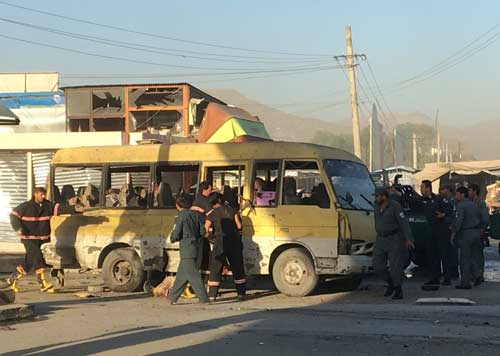Several journalists in Kabul–the exact number is unclear–were beaten, harassed, and kept from working by security forces when they rushed to cover a suicide bombing on Monday that killed 14 people and wounded more than eight. In an email message, the Afghan Journalists Safety Committee (AJSC), an organization with which we work closely, said when the correspondents and camera crews arrived near the site of the explosion, they were stopped by the police, and some of them beaten. AJSC identified Mohammad Ghazi Rasouli, a television correspondent; reporter Tawfik Khoja Siddiqui; and a journalist who works for a Turkish news agency ANP as among those harassed.
AJSC “strongly condemned the behavior of the police” and called on the Interior Ministry to deal with the perpetrators “as soon as possible.” That is a call CPJ supports. Wisely, AJSC also called for the training of security forces when they find themselves in such situations, which CPJ also very much supports. We’ve written about training for security forces in the past, and it seems time to renew that call.
Bombings and other terrorist attacks are intentionally chaotic, and tensions run high even after the immediate danger has passed. Just as it is the job of the police to aid and protect the citizens injured, it is the role of media to report on the event. By now there have been thousands of terrorist attacks in Afghanistan and they seem unlikely to stop any time soon. Enough time has passed that the forces responsible for protecting people, and the media responsible for capturing the horror of such attacks, should have learned to co-exist as each group goes about its very difficult job.
Training for the police and all other security forces: Definitely. The best way to start might be for AJSC to organize a meeting between journalists groups and the ministries of interior and defense.
